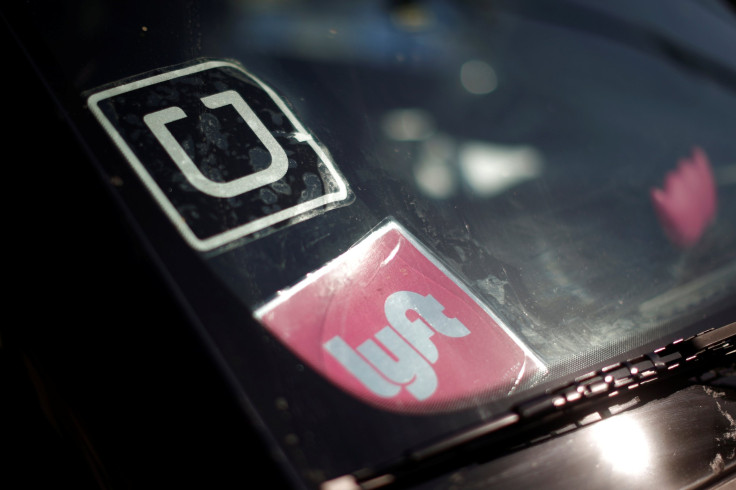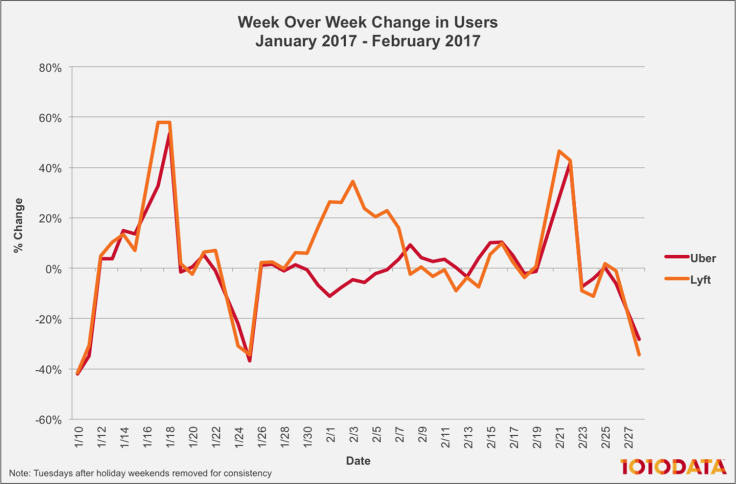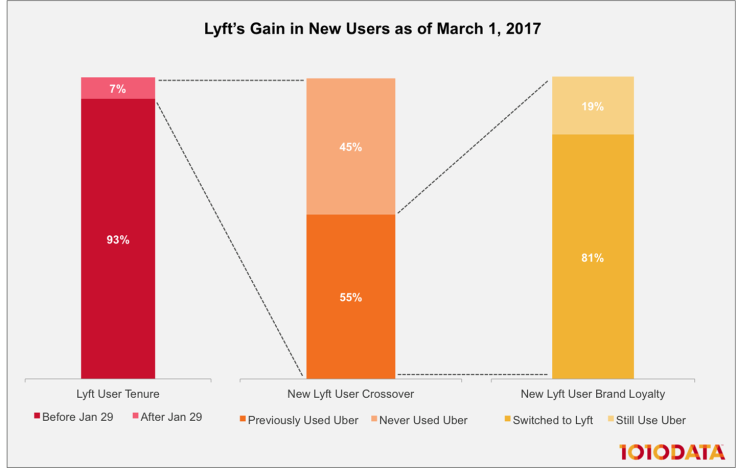Is Lyft Better Than Uber? Why Riders Are Switching

Uber Technologies Inc. may dominate the ride-share service industry, but bad publicity, like its recent spate of scandals, could put a serious dent in market share, and its main competitor, Lyft, stands to rake in the benefits.
In the weeks spanning Uber’s public debacles — including a videotaped argument between its CEO and a driver, reports of rampant sexual harassment and data tools used to evade government authorities, among other incidents — Lyft’s customer base grew 7 percent, analytics company 1010data reported. More than half of Lyft’s new riders had previously used Uber, and of those ex-Uber users, a full 81 percent completely stopped using the latter app after they switched.



Uber has long seen a slow decline in its market share split with Lyft, from more than 90 percent at the start of 2014 to around three-quarters in January 2017, 1010data said. But the larger firm saw a dip in its week-over-week user growth in the 30 days after Jan. 29 while Lyft saw a spike in growth in the same period. Otherwise, their user trends closely aligned, the analytics company found.
The date of that user growth change coincided with a social media campaign to "#deleteuber" following the company’s poorly timed tweet promising a halt to surge prices around the John F. Kennedy International Airport — just in time to effectively negate a boycott by New York cab drivers against President Donald Trump’s executive order banning citizens of seven Muslim-majority countries from entering the U.S.
NO PICKUPS @ JFK Airport 6 PM to 7 PM today. Drivers stand in solidarity with thousands protesting inhumane & unconstitutional #MuslimBan.
— NY Taxi Workers (@NYTWA) January 28, 2017
Scores of people are deleting Uber after the company serviced rides at JFK airport while taxis were striking against muslim ban #deleteuber pic.twitter.com/D8cJMlxOxQ
— Josh Butler (@JoshButler) January 29, 2017
Uber’s image problems were far from over after CEO Travis Kalanick declared the company would give financial help to the families of drivers stranded outside the country by the travel ban, and pledged to address the controversial executive order at a meeting with Trump as part of the president’s business advisory group, which Kalanick later left. (Lyft, by contrast, pledged a $1 million donation to the American Civil Liberties Union, whose lawyers fought the travel ban in court.)
Several weeks after the travel ban's chaotic implementation, former Uber engineer Susan J. Fowler wrote in a now-viral blog post she left the company as a result of “sexism within the organization” and behavior by one coworker that “was clearly sexual harassment” but went without penalty since “he was a high performer.” The San Francisco-based company hired former Attorney General Eric Holder to investigate her claims and consulted with Huffington Post founder Arianna Huffington on improving the situation of “women in the workplace,” the company’s site said.
Uber’s woes for the month of February didn’t end there. Leaked footage of Kalanick cursing at a driver who complained of lower fare prices surfaced online, prompting the co-founder and chief executive to apologize publicly.
While Uber’s user growth appeared to recover by the end of February, it faced scrutiny for one more scandal at the start of March when employee whistleblowers told the New York Times about a data tool the company used, called Greyball, which allowed it to circumvent regulators in major cities. In a March 8 note, Uber chief security officer Joe Sullivan promised to ensure that “expressly prohibiting its use to target action by local regulators” is “fully enforced.”
© Copyright IBTimes 2024. All rights reserved.






















